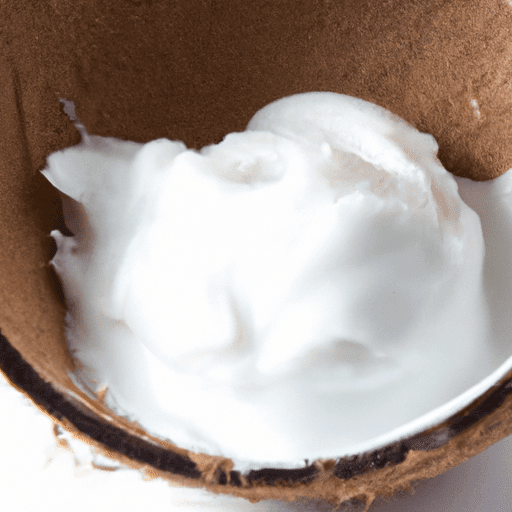Discover the Versatile Delight of Coconut Manna: A True Culinary Gem
Are you ready to embark on a journey into the world of tropical flavors and creamy textures? Look no further than coconut manna, a sensational ingredient that promises to elevate your cooking to new heights. This delectable spread derived from pure coconut flesh possesses a unique taste, a variety of culinary applications, impressive nutritional benefits, and a fascinating history that you won’t want to miss.
The Irresistible Taste of Coconut Manna
Coconut manna, also known as coconut butter, is an incredibly rich and velvety concoction that encapsulates the essence of the tropics within a jar. Its lusciousness stems from the finely ground coconut meat that it is made from. Upon indulging in the mild, subtly sweet flavor enriched with nutty undertones, you’ll be transported to a paradise of culinary delights.
Exploring Culinary Uses
With its versatility, it’s no wonder coconut manna has become a staple in the pantries of both home cooks and professional chefs alike. Here are some exciting ways to incorporate this heavenly spread into your culinary creations:
1. Baking Bliss
Coconut manna adds a delightful twist to baked goods, imbuing them with its unique taste and providing unparalleled moisture. Replace traditional butters or oils in recipes with equal parts of coconut manna to infuse your cakes, cookies, and muffins with tropical goodness.
2. Smoothies and Shakes
Consider adding a dollop of coconut manna to your smoothies or shakes for a luxurious texture and a hint of natural sweetness. It pairs perfectly with tropical fruits like mango, pineapple, and banana, creating a heavenly beach-worthy indulgence.
3. Sauces and Condiments
Elevate your savory dishes by incorporating coconut manna into sauces, dressings, or vinaigrettes. Its smooth consistency and tropical taste will lend a touch of exotic charm to dishes like curries, stir-fries, or marinades.
4. Spreadable Delights
Simply spread coconut manna on toast, pancakes, or waffles for an indulgent breakfast treat. Combine it with a drizzle of honey or a sprinkle of cinnamon for an added burst of flavor. It also serves as a delightful alternative to other spreads, such as nut butters.
5. Dips and Desserts
Mix coconut manna with natural yogurt, honey, or your favorite spices to create a delectable dip for fruits, crackers, or vegetable crudités. You can also use it as a creamy topping for desserts like puddings, parfaits, or even ice cream.
Nutritional Marvels
In addition to its delightful taste and culinary versatility, coconut manna boasts an array of impressive nutritional benefits. Rich in healthy fats, fiber, and essential minerals, it is a wholesome choice to incorporate into your diet. Although it is calorie-dense, the healthy fats in coconut manna are medium-chain triglycerides (MCTs), which provide an immediate source of energy.
A Peek at the Intriguing History
Coconut manna holds its roots in the tropical regions where the coconut palm thrives. For centuries, coconuts have been a vital source of sustenance and nourishment in these areas. The process of extracting coconut manna involves grinding the meat of mature coconuts until it reaches a smooth, buttery consistency. This traditional method has been passed down through generations, and we are fortunate to have access to this delightful creation today.
In Conclusion
Coconut manna is a culinary gem that can enhance the taste and texture of countless dishes. Its distinct flavor, incredible versatility, and numerous nutritional benefits make it a must-have pantry staple for any food enthusiast. Whether you’re baking, blending, or simply enjoying it as a luxurious spread, coconut manna is sure to transport your taste buds on a tropical vacation. Embrace this delectable delight and let its creamy goodness revolutionize your cooking adventures.
Facts about Coconut Manna:
- Coconut manna, also known as coconut butter, is a creamy and rich spread made from pureed coconut flesh.
- It has its origins in the tropical regions of the world, with coconuts being an essential part of the cuisine in countries like Thailand, Indonesia, and the Philippines.
- Coconut manna is commonly used as an ingredient in various recipes, including smoothies, desserts, curries, and baked goods. It can also be enjoyed straight from the jar as a spread.
- It is often used as a vegan substitute for dairy butter or cream in recipes, thanks to its smooth texture and mild coconut flavor.
- Coconut manna is rich in healthy fats, particularly medium-chain triglycerides (MCTs). MCTs are easily digested and converted into energy by the body.
- It also contains fiber, which aids in digestion, and important minerals such as iron and magnesium.
- Coconut manna is unique in that it has a natural separation of oil from the creamy flesh. To use it, the jar can be gently heated and stirred before consuming or incorporating into recipes.
- Historically, coconuts have been valued for their versatility and long shelf life, making them an essential food source for seafaring cultures. This made coconuts an important part of the culture and cuisine in regions where they grew abundantly.
- Coconut manna should not be confused with coconut oil, as the two differ in texture and application. Coconut oil is a pure oil extracted from coconut flesh, while coconut manna is the flesh itself, pureed into a creamy consistency.
Remember, coconut manna is a high-calorie food, so it should be consumed in moderation as part of a balanced diet.




Use the share button below if you liked it.
It makes me smile, when I see it.